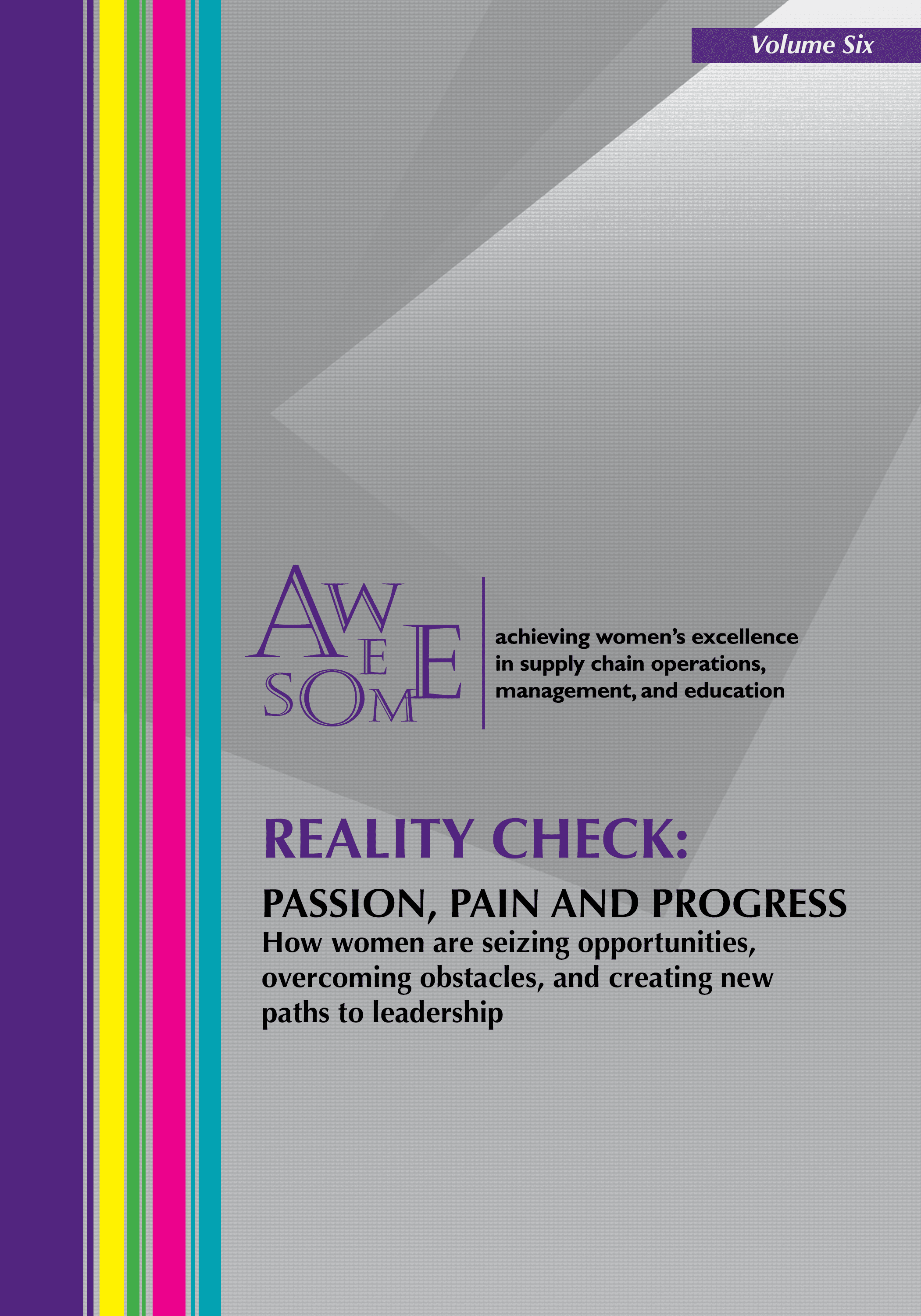 The newly released sixth volume of REALITY CHECK, a report published by AWESOME (Achieving Women’s Excellence in Supply Chain Operations, Management, and Education) following each of the organization’s annual Symposiums, highlights three reasons the advancement of women in the field is cause for optimism. This complete study is also available for download.
The newly released sixth volume of REALITY CHECK, a report published by AWESOME (Achieving Women’s Excellence in Supply Chain Operations, Management, and Education) following each of the organization’s annual Symposiums, highlights three reasons the advancement of women in the field is cause for optimism. This complete study is also available for download.
Titled “Passion, Pain and Progress: How women are seizing opportunities, overcoming obstacles, and creating new paths to leadership,” the new REALITY CHECK is available for download.
According to Nancy Nix, AWESOME Executive Director, “Our key observation is that as extraordinary women in the field have advanced to higher standing, the overall level of women’s achievement in the field has risen. That progression is due mainly to three factors. First, women who are performing in top leadership positions across the industry have great passion for those roles. They are delivering outstanding leadership, earning the respect of male colleagues, and leading teams in a field that is in a field that is increasing in strategic importance. Second, the greater visibility of these women is giving other women increased confidence that they, too, can overcome obstacles. Third, individual leaders – both women and men – are taking steps at their own companies, changing cultures that have deterred or detoured women and advocating for diverse leadership. They’re taking personal responsibility for progress and are committed to making a difference.”
She continued, “While data gathered in our own research with Gartner – the 2017 Women in Supply Chain Study – still shows a significant gap between the numbers of men and women in senior leadership roles, there is a sense of momentum and higher expectations.” The full report of this study is also available for download.
Volume Six of REALITY CHECK includes insights, observations and “words of wisdom” from participants in the 2017 Symposium, including senior women in supply chain, male supply chain leaders, and highly-accomplished women in other fields. A special retrospective traces the progression of thinking and understanding since the first Symposium in 2013.